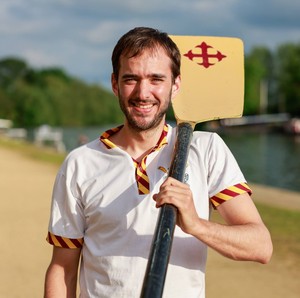Julia Camps

Julia Camps
Interests
Science and Innovation
My research interest is the intersection between data-driven and mechanistic representations of the human heart for the realisation of precision cardiology. My research focuses on developing inference and machine learning technologies that enable the generation of digital twins of the human heart for the realisation of precision medicine through in silico trials.
My publications demonstrate how data can be combined with physiological knowledge to augment information compared to traditional machine learning approaches.
Software and Tools
The tools developed during my research are publicly available after peer-review publication on my GitHub.
- Generation of (activation and repolarisation) electrophysiological cardiac digital twins with Purkinje networks from 12-lead electrocardiograms: code and publication.
- Generation of (activation sequence) electrophysiological cardiac digital twins with Purkinje networks from 12-lead electrocardiograms: code and publication.
- Generation of (activation sequence) electrophysiological cardiac digital twins from 12-lead electrocardiograms: code and publication.
- Electrocardiogram delineation using deep learning: code and publication.
- Freezing of gait detection using deep learning: code and publication.
All software and tools are licenced under a Creative Commons Attribution licence (CC BY) to allow anyone to adapt and use my work and facilitate collaborations with the industry.
Biography
I am a postdoctoral research associate at the University of Oxford. I graduated as an Informatics Engineer at the Universitat Politècnica de Catalunya in 2014. After one year in industry, I enrolled in the Master's in Artificial Intelligence at the same university (2015-2017), followed by a DPhil in Computer Science at the University of Oxford (2017-2021) within the Computational Cardiovascular Science research group under the supervision of Prof Blanca Rodriguez. During my PhD, I developed statistical methods for generating cardiac digital twins from multimodal clinical data to improve therapeutical and diagnostic decision-making. In May 2021, I started my current post-doc with Prof Blanca Rodriguez on investigating the mechanisms that explain disease progression in post-myocardial infarction and leading the development of cardiac digital twins.
Selected Publications
-
Cardiac Digital Twin Pipeline for Virtual Therapy Evaluation
Julia Camps‚ Zhinuo Jenny Wang‚ Ruben Doste‚ Maxx Holmes‚ Brodie Lawson‚ Jakub Tomek‚ Kevin Burrage‚ Alfonso Bueno−Orovio and Blanca Rodriguez
In arXiv. 2024.
Details about Cardiac Digital Twin Pipeline for Virtual Therapy Evaluation | BibTeX data for Cardiac Digital Twin Pipeline for Virtual Therapy Evaluation | DOI (10.48550/arXiv.2401.10029) | Link to Cardiac Digital Twin Pipeline for Virtual Therapy Evaluation
-
Digital Twinning of the Human Ventricular Activation Sequence to Clinical 12−lead ECGs and Magnetic Resonance Imaging Using Realistic Purkinje Networks for in Silico Clinical Trials
Julia Camps‚ Lucas Arantes Berg‚ Zhinuo Jenny Wang‚ Rafael Sebastian‚ Leto Luana Riebel‚ Ruben Doste‚ Xin Zhou‚ Rafael Sachetto‚ James Coleman‚ Brodie Lawson‚ Vicente Grau‚ Kevin Burrage‚ Alfonso Bueno−Orovio‚ Rodrigo Weber and Blanca Rodriguez
In arXiv. 2023.
Details about Digital Twinning of the Human Ventricular Activation Sequence to Clinical 12−lead ECGs and Magnetic Resonance Imaging Using Realistic Purkinje Networks for in Silico Clinical Trials | BibTeX data for Digital Twinning of the Human Ventricular Activation Sequence to Clinical 12−lead ECGs and Magnetic Resonance Imaging Using Realistic Purkinje Networks for in Silico Clinical Trials | DOI (10.48550/arXiv.2306.13740) | Link to Digital Twinning of the Human Ventricular Activation Sequence to Clinical 12−lead ECGs and Magnetic Resonance Imaging Using Realistic Purkinje Networks for in Silico Clinical Trials
-
Inference of ventricular activation properties from non−invasive electrocardiography
Julia Camps‚ Brodie Lawson‚ Christopher Drovandi‚ Ana Minchole‚ Zhinuo Jenny Wang‚ Vicente Grau‚ Kevin Burrage and Blanca Rodriguez
In Medical Image Analysis. Vol. 73. Pages 102143. October, 2021.
Details about Inference of ventricular activation properties from non−invasive electrocardiography | BibTeX data for Inference of ventricular activation properties from non−invasive electrocardiography | DOI (10.1016/j.media.2021.102143) | Link to Inference of ventricular activation properties from non−invasive electrocardiography
